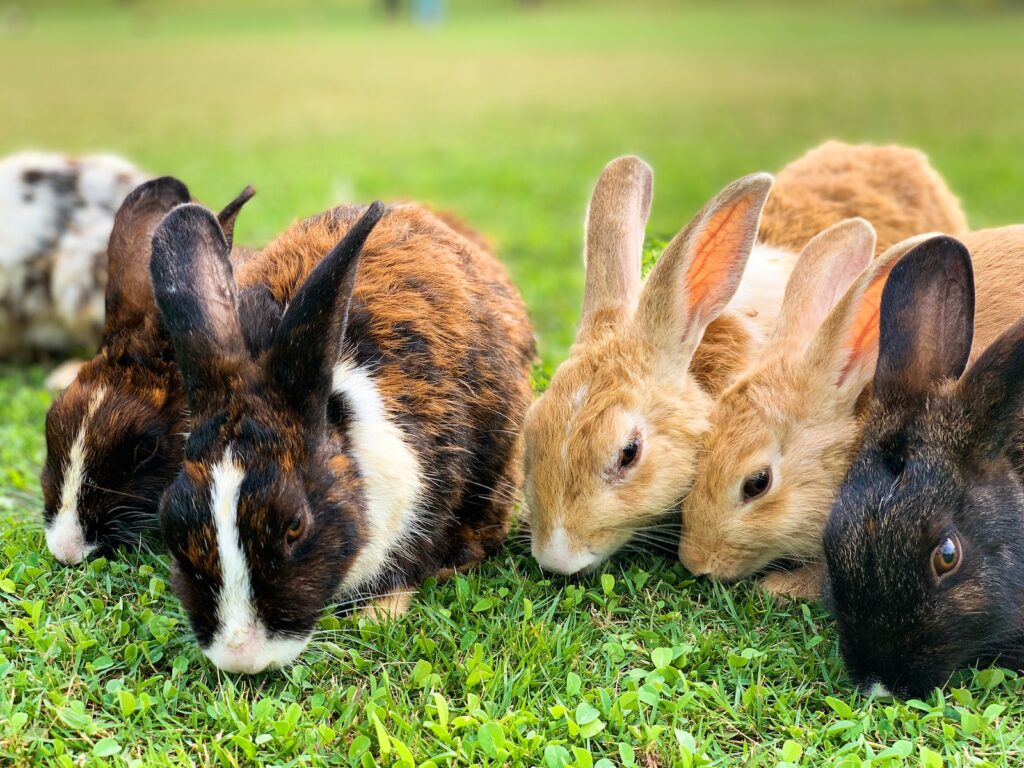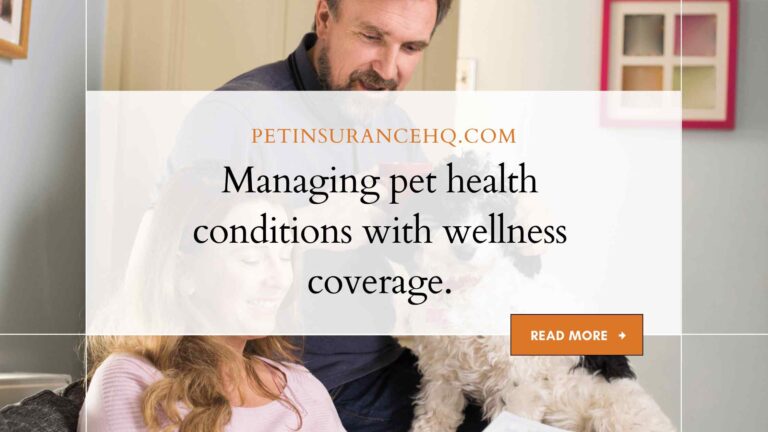The best wellness plans for small pets like rabbits and guinea pigs
Welcome to our newest blog post, pet lovers! Today, we’ll be discussing the best wellness plans for small pets like rabbits and guinea pigs. As a responsible pet owner, it’s important to ensure that your furry friends are in good health all year round. While taking care of small pets may seem easy at first glance, ensuring their wellness can be quite challenging without proper guidance and information.
Fear not though – we’re here with expert tips and tricks on how you can give your little ones the best possible care they deserve. So put on your bunny ears or guinea pig hats and let’s get started!
Introduction to Wellness Plans for Small Pets

As a small pet owner, you want to do everything you can to keep your furry friend healthy and happy. A big part of that is preventive care, which is why many vets offer wellness plans for small pets.
Wellness plans typically cover all the basics of preventive care, like routine vaccinations, parasite control, and annual check-ups. They may also include other important services like dental care or spaying/neutering.
The best wellness plans are tailored to the specific needs of your pet. For example, if your bunny has a high risk of getting ear mites, your vet may recommend a plan that includes regular ear cleanings.
Wellness plans can be a great way to save money on preventive care for your small pet. Many plans offer discounts on services and products, and some even include free office visits.
If you’re considering a wellness plan for your small pet, talk to your vet about what options are available and which one would be best for your furry friend.
What Should a Wellness Plan Include?
A wellness plan is a great way to ensure your small pet stays healthy and lives a long, happy life. But what should a wellness plan include? Here are some essential components:
- Regular check-ups with a vet who is experienced in treating small animals like rabbits and guinea pigs.
- A nutritious diet that meets all of your pet’s needs, including hay, fresh vegetables, and a quality pellet food.
- Proper housing that is safe, clean, and spacious enough for your pet to move around freely.
- Plenty of opportunities for exercise, whether it’s running around in the yard or playing with toys inside the house.
- A good grooming routine that includes brushing and nail trimming as needed.
- Regular Parasite control, including monthly heartworm prevention (for dogs) and yearly deworming (for all pets).
- Annual vaccinations against common diseases like rabies (for dogs), Bordetella (for dogs), and RHDV1 (for rabbits).
The Benefits of Having a Wellness Plan for Your Pet
A wellness plan is a great way to ensure your pet stays healthy and happy. Here are some benefits of having a wellness plan for your pet:
- Preventive care – a wellness plan can help catch health problems early and prevent them from becoming serious. This can save you money in the long run, as well as keeping your pet healthy and happy.
- Peace of mind – knowing that your pet is up-to-date on all their vaccinations and has been checked by a vet regularly can give you peace of mind.
- Detecting health problems early – because pets age more quickly than humans, regular check-ups are important in order to detect health problems early. This allows you to get treatment for your pet before the problem becomes serious.
- Customized care – because every pet is different, a wellness plan can be customized to meet the specific needs of your pet. This ensures that they are getting the best possible care.
Choosing the Right Vet
It’s important to choose the right vet for your small pet. You want a vet who is experienced in treating small pets and who you feel comfortable with.
Here are some things to consider when choosing a vet:
- Location: You’ll want to choose a vet that is conveniently located for you.
- Services: Make sure the vet offers the services you need, such as Rabbit and Guinea Pig wellness plans.
- Cost: Be sure to compare prices before making your final decision.
Types of Vaccines and Health Treatments
There are a variety of vaccines and health treatments available for small pets like rabbits and guinea pigs. Some of the most common vaccines include those for rabies, Bordetella, and distemper. Health treatments can include everything from spaying and neutering to dental care.
Vaccines are an important part of preventative healthcare for small pets. They help to protect against deadly diseases like rabies, Bordetella, and distemper. Vaccinating your pet is one of the best ways to keep them healthy and safe.
Spaying and neutering are important health treatments for small pets. These procedures help to prevent unwanted litters of animals, which can often end up in shelters or being euthanized. Spaying and neutering also have health benefits for your pet, such as reduced risk of certain cancers.
Dental care is another important health treatment for small pets. Just like in humans, dental disease can be painful and lead to other health problems. Regular brushing and annual vet check-ups can help keep your pet’s teeth healthy and avoid costly dental problems down the road.
Nutrition Guidelines
A healthy diet is critical for maintaining the overall health of small pets like rabbits and guinea pigs. A well-balanced diet for these animals should consist of hay, fresh vegetables, and a small amount of pellets.
Hay should make up the majority of their diet and should be available at all times. Timothy hay is a good option, as it is high in fiber and low in calories. Fresh vegetables can be offered daily and should include items like carrots, broccoli, cabbage, and spinach. Pellets should be given sparingly, as they are often high in calories and low in nutrients.
Rabbits and guinea pigs require a lot of water to stay hydrated. They will typically drink from a water bottle attached to their cage. It is important to check the bottle regularly to make sure it is clean and full.
Exercise Requirements
Exercise is an important part of keeping your small pet healthy and well-rounded. Without enough physical activity, your pet may become obese and suffer from joint pain, heart disease, and other health problems.
Ideally, your small pet should have at least some time outside of its cage every day to run around and explore. If possible, create or designate a safe area in your home where your pet can play freely. This could be a spare room, a large enclosure, or even just a sectioned-off area of your living room or kitchen.
If you have multiple small pets, it’s important to provide them with separate exercise areas so they can each get the individual attention and space they need. You should also provide plenty of toys and enrichment items in their exercise areas to keep them stimulated and engaged.
Remember that not all exercise needs to be high-intensity running or playing. Just spending some time interacting with your pet – whether it’s cuddling, grooming, or playing games – can also help burn calories and promote bonding between you and your furry friend.
Grooming Tips
Assuming you would like tips for grooming small pets:
The first thing you will need is the proper equipment. You will need a soft bristled brush and a pet safe shampoo. A good quality shampoo will help to keep your pet’s coat healthy and free of any irritants. Next, you will want to make sure that you have a clean, comfortable area for your pet to be in while you are grooming them. This could be a bathtub with a nonslip mat, or even just a large sink.
Once you have gathered all of your supplies, it’s time to start the grooming process! Begin by wetting down your pet’s coat with warm water. Be sure to avoid getting water in their face or ears. Apply a small amount of shampoo to their coat and work it in using circular motions with your brush. Rinse off the shampoo completely and then dry your pet’s fur using a towel or hairdryer on the cool setting. And that’s it! Your pet is now looking and feeling their best.
Conclusion
We hope this article has helped you learn more about the best wellness plans for small pets like rabbits and guinea pigs. They may be tiny, but their health needs to be taken seriously. Making sure they get the right nutrition, regular exercise and enough mental stimulations are all important steps in having healthy and happy little furry friends. With an informed approach to pet care, your rabbit or guinea pig will live a long life filled with lots of cuddles and love!







